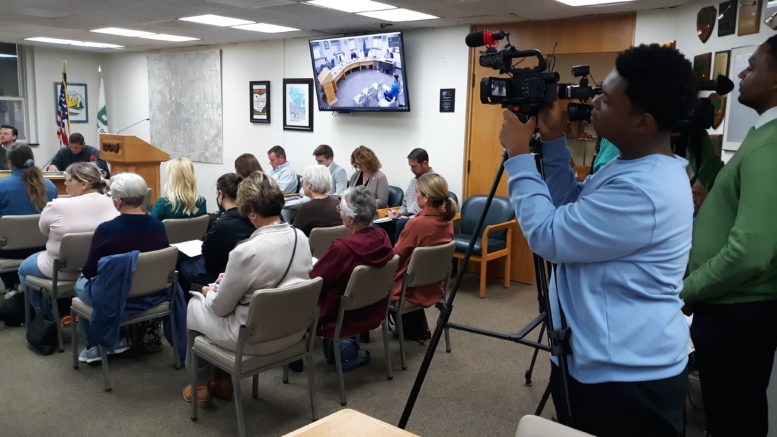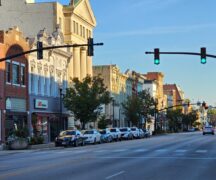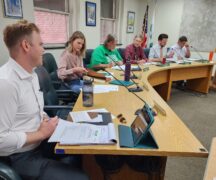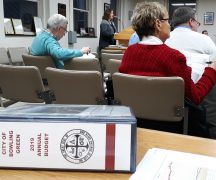By JAN LARSON McLAUGHLIN
BG Independent News
The overturning of Roe v. Wade led two groups of women in Bowling Green to mobilize. Those women – college students and suburban moms – reached out to City Council to create a safe haven in an unwelcome climate for reproductive rights.
Bowling Green City Council responded with an amendment to the city’s existing anti-discrimination ordinance.
The change, of course, does not preserve rights to abortion in Ohio – but it does offer protections from some possible ramifications of getting an abortion, having a baby, and breastfeeding a baby.
Chapter 39 of Bowling Green’s codified ordinances already protects individuals against discrimination in workplaces, businesses, public accommodations and educational institutions. The protected classes include race, ethnicity, religion, age and sexual orientation.
Originally passed in 2009, the ordinance currently includes “sex” as a protected class.
The new section would add protections of people’s reproductive healthcare decisions, breastfeeding mothers, as well as pregnant people or those seeking to become pregnant.
The proposed amendments are modeled after an ordinance already adopted in Columbus, Bowling Green City Council member Nick Rubando said after Monday’s meeting.
Rubando explained some of the situations that the ordinance could be used to protect reproductive rights.
The provisions would protect the jobs of women who miss work if they have to travel out of state for an abortion. They would prevent a landlord from kicking out a tenant because they have a baby.
“This is protecting all women who are pregnant, having abortions, breastfeeding or pumping,” Rubando said.
Two women spoke up at the council meeting, explaining the need for the amendment.
Emily Gerome, vice president of the College Democrats at BGSU, talked about the more than 130 students and community members who showed up for a recent rally for reproductive rights. The fact that City Council is listening is meaningful, Gerome said. The language of the amendment is inclusive, and shows students that the city wants to create a welcoming and safe community, she said.
“Bowling Green is tuned in and listening, and wants to make a change,” Gerome said.
Also speaking was Holli Gray-Luring, who said she immediately found other suburban moms who were upset after Roe was overturned. Soon after, the six moms organized a protest outside the county courthouse.
“There was a lot of fear and confusion,” Gray-Luring said.
The group emailed their concerns to Bowling Green City Council members, who agreed to meet with them. Soon the six moms fighting for reproductive rights had grown into more than 250 members seeking equality, safety, and freedom to make choices over their own bodies.
“We are persistent freedom fighters,” Gray-Luring said.
The amendment to the anti-discrimination ordinance received its first of three required readings Monday evening.
Council member Greg Robinette questioned the necessity of the change.
“What problem or shortfall are we trying to fix?” Robinette asked, noting that the current ordinance already covers 25 protected classes.
“It seems to cover every possible category,” he said.
Rubando responded that the existing ordinance does not address reproductive rights.
“This was language that they asked for,” he said of the women who approached council members on the change. “They are not feeling their rights are protected under the current ordinance.”
Robinette asked if any complaints had been filed about such discrimination.
Council member Joel O’Dorisio said laws on the books can prevent people from taking discriminatory actions. And city laws can make a difference – such as BGSU providing benefits for same sex partners based on the city ordinance.
“This new legislation will have benefits,” O’Dorisio said.





